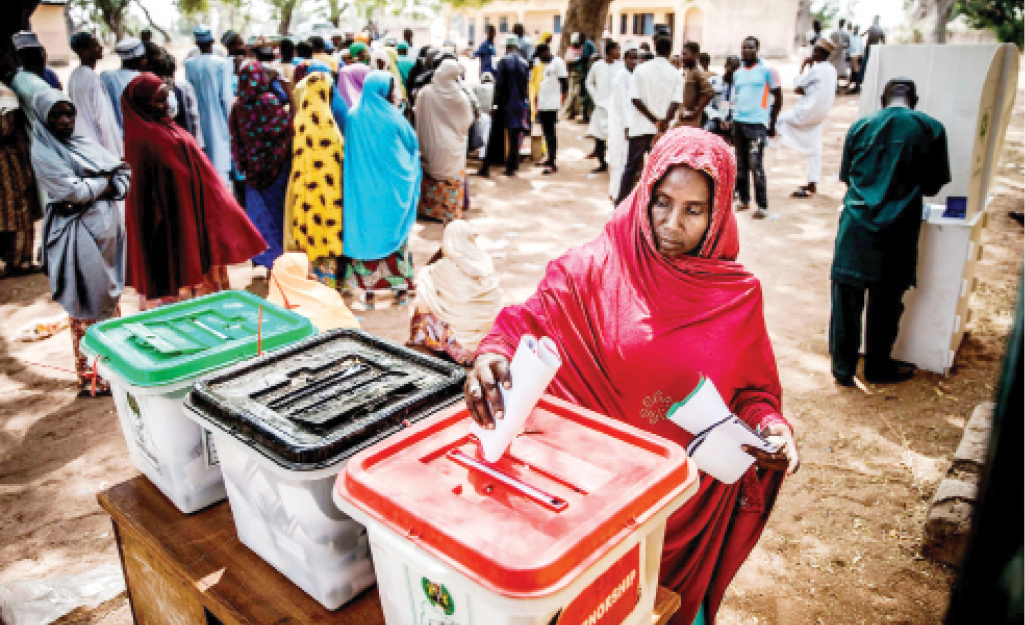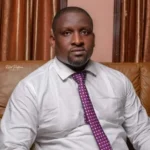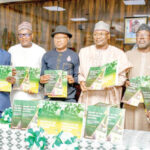For the last 25 years, Nigeria has been stuck with 119,973 Polling Units (PUs) and over 57,000 voting Points (VPs) despite a massive population growth.
Previous attempts to update these have met public outcry but the commission has perfected plans to succeed this time.
- Reps ask INEC to review federal constituencies
Food dealers: Northerners, Southerners Suffered But We Achieved Our Aim
The Independent National Electoral Commission (INEC) last month said it intends to update the 119,973 Polling Units (PUs) and over 57,000 voting Points (VPs) Nigeria has been stuck with for 25 years.
The National Commissioner and Chairman, Information and Voter Education Committee (IVEC), Festus Okoye, said this in Abuja at the end of the management meeting of the commission.
The decision is to reflect the realities of population growth and the establishment of new settlements in the country.
In August 2014, INEC proposed the creation of 30, 027 more polling units, with the northern region getting 21,615 while the southern region was to get 8,412 units. The controversy that trailed this decision forced the commission to suspend the plans.
The INEC Chairman, Prof. Mahmood Yakubu, had said that Nigeria is currently underserved by its PUs voting points (VPs).
However, Okoye said for several weeks, the commission has been preparing for these national engagements to address the inadequacies and the challenges of overcrowding, numerous unserved populations and poor locations, which are potentially disenfranchising millions of Nigerians.
“For several years the commission has tried to address this fundamental challenge to democratic consolidation and election administration with minimal success. This has been mainly due to inadequate engagement between the commission and stakeholders.
“Consequently, the commission has had to resort to interim measures, such as creating Voting Points (VPs) at Polling Units (PUs) nationwide and establishing Voting Point Settlements (VPS) in the FCT,” he said.
Voting population to rise to 100m
Speaking at a meeting with media executives, Prof. Yakubu said the population of registered voters in the country might increase to 100 million by 2023 yet the PUs have not increased to accommodate the population growth.
About 16 million new voters are expected to register during the Continuous Voter Registration (CVR) exercise, which would commence in the first quarter of this year.
“Nigeria has a critical problem of voter access to polling units. The country currently has 119,973 polling units established a quarter of a century ago in 1996 by the defunct National Electoral Commission of Nigeria (NECON). At that time, the voter population was projected at 50 million. The voters’ register increased to 84,004,084 by 2019.
“We envisage that by the next general election in 2023, the population of registered voters may be twice the number projected in 1996. Yet, the number of polling units remains the same.”
The INEC boss said a review of three previous efforts to expand access to polling units revealed that the intentions of the commission were misconstrued and politicised, adding that learning from experience, the commission decided to start early and engage with Nigerians by consulting widely.
The commission had also met with security agencies and other stakeholders. This was under the auspices of the Inter-Agency Consultative Committee on Election Security (ICCES).
The meeting, the first of its quarterly consultative forum for 2021, in the communique on Wednesday, adopted the INEC policy to create additional PUs in the country.
“ICCES will collaborate with the commission in achieving this objective and in promoting measures towards a seamless adjustment of expanding Voter Access to PUs as the need arises in the future; that in expanding voters’ access to PUs, due attention should be paid to locations of the proposed PUs in suitable, accessible, secure and conducive environments for voting,” the communique said.
Speaking earlier, Prof. Yakubu, said that the management of large crowds at many PUs across the country has been a challenge.
“The management of large crowds at many polling units across the country has been challenging to commission officials and the members of ICCES. This in some cases resulted in the late commencement of polls or the disruption of the sorting and counting of ballots at PUs.
“Such disruptions often have consequences on electoral outcomes leading, in some instances, to avoidable supplementary elections. As you are aware, the success of elections is largely a reflection of what happens at the polling unit level. It is the only point at which votes are cast by eligible citizens. What follows thereafter is the collation process leading to the declaration of results.
Speaking afterwards, the National Security Adviser (NSA), Maj-Gen. Babagana Monguno (Retd), commended the synergy between INEC and security agencies in recent elections in Edo and Ondo states and other by-elections.
Monguno, represented by Sanusi Galadima, also commended the professionalism displayed by security personnel and expressed optimism that future elections would be better.
“The NSA also urged INEC to redouble his efforts to ensure that the upcoming elections in Anambra will be devoid of rancour,” he said.
He commended INEC for expanding its ICCES committee to include the National Centre for Disease Control (NCDC) and National Orientation Agency (NOA), saying their inclusion will further enlighten voters and mitigate the second wave of COVID-19.
Also speaking at the first quarterly consultative meeting with civil society organisations (CSOs) for the year 2021 held virtually, Yakubu said, “As accredited election observers, CSOs have submitted reports to the commission. Having studied these reports in detail, it is clear that you are concerned about the declining voter turnout in elections in Nigeria. Over the last two electoral cycles, including off-season elections, voter turnout across the country hovers around 30-35 per cent.”
He said that while a few elections had higher turnouts, some recent by-elections recorded as low as 8.3 per cent voter turnout in an urban constituency of over 1.2 million registered voters in the nation’s most densely populated city.
Yakubu said that countries with higher voter turnout during elections also have adequate and convenient voting locations for eligible voters, which are periodically adjusted to reflect the increase in voter population.
Why previous attempts failed
The INEC boss also told leaders of the nation’s registered political parties that previous attempts at creating additional PUs failed because they were handled administratively and the timings were also close to General Elections.
According to him, experience has shown that enhanced voter access to PUs increases turnouts in elections and that not surprisingly, many countries expand access to PUs with every fresh registration of voters while others do so routinely or before every general election.
Also speaking, the National Chairman, Inter-Party Advisory Council (IPAC), Dr Leonard Nzenwa, said that the importance of additional PUs in the country would be in the best interest of democracy and national development of the country.
On his part, INEC National Commissioner in charge of Electoral Operations, Prof. Okechukwu Ibeanu, said that voter access to PUs goes beyond their establishment but also entails their locations in accessible places and ensuring that the environment of each PU guarantees the observance of the commission’s guidelines.
The commission on Tuesday met with the National Assembly Joint Committee on INEC and Electoral Matters, in Abuja.
The INEC boss was at the lawmaker’s chambers soliciting support for the commission’s efforts at converting the existing voting points in the country to polling units and relocation of some of them from underserved areas.
Yakubu urged the lawmakers and stakeholders to help de-politicise issues around the intention of the commission as the crisis affects all parts of the country.
He said that it has not also been suitable for INEC to properly manage elections and ensure that rules are strictly adhered to.
“We received 5,747 requests in October 2020 to establish new polling units. The commission did not tell citizens to apply or to request for the creation of whatever units.
“As of last week, February 23, the number of requests has increased to 9,092, which is an additional 4,300 requests over a period of four months, and the number keeps increasing,” he said.
The Senate President Ahmad Lawan seemed pleased by the moves and pledges the assembly’s support to the commission.
“We will do whatever it takes because democracy is about participation and voting is probably the most important thing,” Lawan said.

 Join Daily Trust WhatsApp Community For Quick Access To News and Happenings Around You.
Join Daily Trust WhatsApp Community For Quick Access To News and Happenings Around You.

